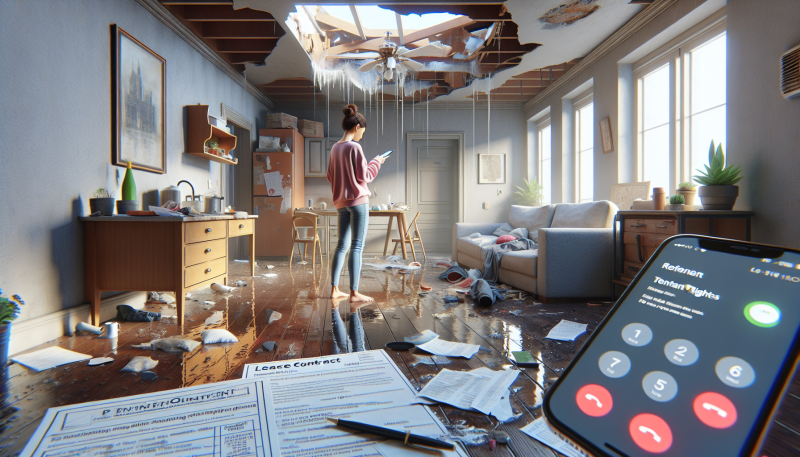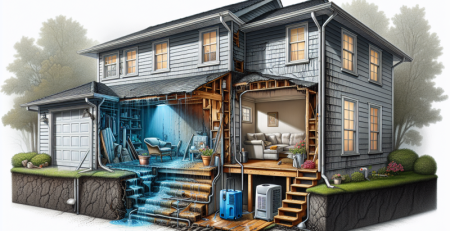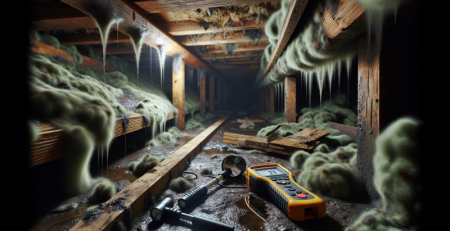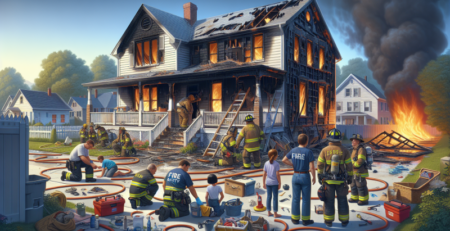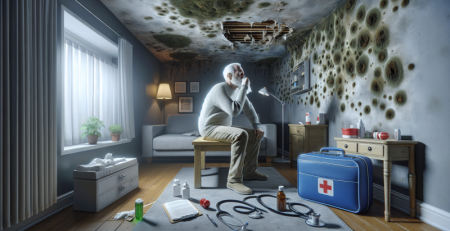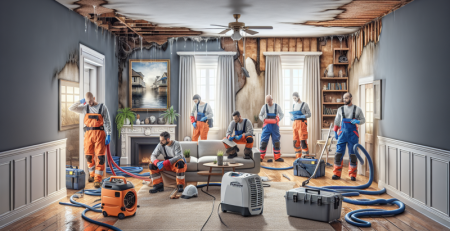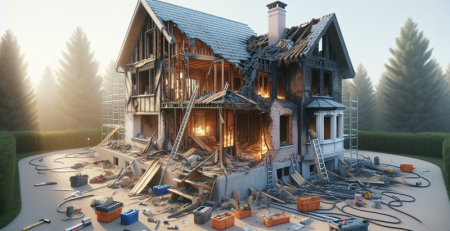Understanding Your Rights as a Tenant After Damage
As a tenant, experiencing property damage can be a distressing and overwhelming situation. Whether it’s due to water damage, mold, fire, or other unforeseen incidents, understanding your rights as a tenant after damage is crucial. This knowledge not only empowers you to take the necessary steps to protect yourself but also ensures that you can effectively communicate with your landlord and seek the appropriate remedies. In this comprehensive guide, we will explore the various aspects of tenant rights after damage, the responsibilities of landlords, and the steps you should take to address any issues that arise.
When damage occurs in a rental property, the first thing you should do is assess the situation. Is the damage severe? Is it affecting your ability to live comfortably in the space? Understanding the extent of the damage will help you determine the urgency of the situation and the appropriate actions to take. For instance, if you are dealing with water damage, it is essential to act quickly to prevent further issues such as mold growth. In New Jersey, where the humidity can exacerbate these problems, seeking professional assistance for water damage restoration is vital. Companies like Kraus Restoration offer specialized services, including water damage restoration New Jersey, to help tenants navigate these challenging circumstances.
Once you have assessed the damage, it is important to notify your landlord immediately. Most leases require tenants to report any damage or maintenance issues promptly. This notification should be in writing, detailing the nature of the damage and any immediate concerns you have. Keeping a record of your communication with your landlord is essential, as it may be necessary for future discussions or disputes.
In New Jersey, landlords have a legal obligation to maintain the rental property in a habitable condition. This includes addressing any damage that affects the safety and livability of the space. If your landlord fails to respond to your notification or does not take appropriate action to repair the damage, you may have grounds to take further steps.
It is also important to understand your rights regarding repairs and maintenance. Under New Jersey law, tenants have the right to a safe and habitable living environment. If the damage poses a health risk, such as mold or structural issues, you may have the right to withhold rent until the necessary repairs are made. However, it is crucial to follow the proper legal procedures when doing so, as failing to do so could lead to eviction or other legal repercussions.
In cases of severe damage, such as fire or extensive water damage, you may need to temporarily relocate while repairs are being made. In such situations, you should discuss with your landlord whether they will cover the costs of temporary housing. If your landlord is unresponsive or refuses to assist, you may need to seek legal advice to understand your options.
If you find yourself dealing with mold, it is essential to act quickly. Mold can pose serious health risks, and tenants have the right to request mold cleanup from their landlords. If your landlord does not take action, you may need to hire professionals for mold cleanup in New Jersey. Companies like Kraus Restoration specialize in mold cleanup New Jersey and can provide the necessary expertise to ensure the issue is resolved effectively.
In addition to understanding your rights, it is also important to be aware of your responsibilities as a tenant. You are expected to take reasonable care of the property and report any damage promptly. If damage occurs due to your negligence, your landlord may not be obligated to cover the repair costs. Therefore, maintaining open communication with your landlord and addressing issues as they arise is crucial.
If you experience damage due to a natural disaster, such as flooding, it is essential to document the damage thoroughly. Take photographs and keep records of any communications with your landlord and restoration companies. This documentation will be invaluable if you need to file an insurance claim or take legal action.
In New Jersey, tenants are also protected under the New Jersey Consumer Fraud Act, which prohibits landlords from engaging in deceptive practices. If you believe your landlord is not fulfilling their obligations or is acting unfairly, you may have grounds to file a complaint with the New Jersey Division of Consumer Affairs.
When dealing with property damage, it is also essential to understand the role of insurance. Many tenants do not realize that renter’s insurance can provide coverage for personal property damaged due to incidents like fire or water damage. If you have renter’s insurance, contact your provider to understand your coverage and the claims process.
If your property is damaged and you need to file a claim, be prepared to provide documentation of the damage, including photographs and any correspondence with your landlord. Your insurance company may also require estimates for repairs from certified professionals. In New Jersey, companies like Kraus Restoration offer professional restoration services and can assist you in documenting the damage and providing estimates for repairs.
In the event of a dispute with your landlord regarding property damage, you may need to consider mediation or legal action. Mediation can be a helpful way to resolve disputes without going to court. If mediation fails, you may need to file a lawsuit to seek compensation for damages or to compel your landlord to make necessary repairs.
Throughout this process, it is essential to remain calm and collected. Dealing with property damage can be stressful, but understanding your rights and responsibilities can help you navigate the situation more effectively. Remember that you are not alone; there are resources available to assist you, including legal aid organizations and tenant advocacy groups.
In conclusion, understanding your rights as a tenant after damage is crucial for protecting yourself and ensuring that your living environment remains safe and habitable. Whether you are dealing with water damage, mold, or fire, knowing how to communicate with your landlord and what steps to take can make a significant difference in the outcome of your situation. If you find yourself in need of assistance, do not hesitate to reach out to professionals who specialize in property damage restoration. Kraus Restoration is here to help with 24/7 emergency services and a team of IICRC certified experts ready to assist you in Central and Northern New Jersey.
For more information or to schedule an inspection, visit our website or contact us directly. Trust Kraus Restoration to handle the tough work and restore your home to its pre-damaged condition.
If you are facing property damage and need immediate assistance, contact Kraus Restoration today at (973) 886 2021 or email us at info@krausrestoration.com. Our team is committed to providing rapid response restoration services to help you get back on your feet. Visit our website for more details on our services, including water cleanup, mold cleanup, and fire cleanup. Let us help you restore your home and peace of mind.
